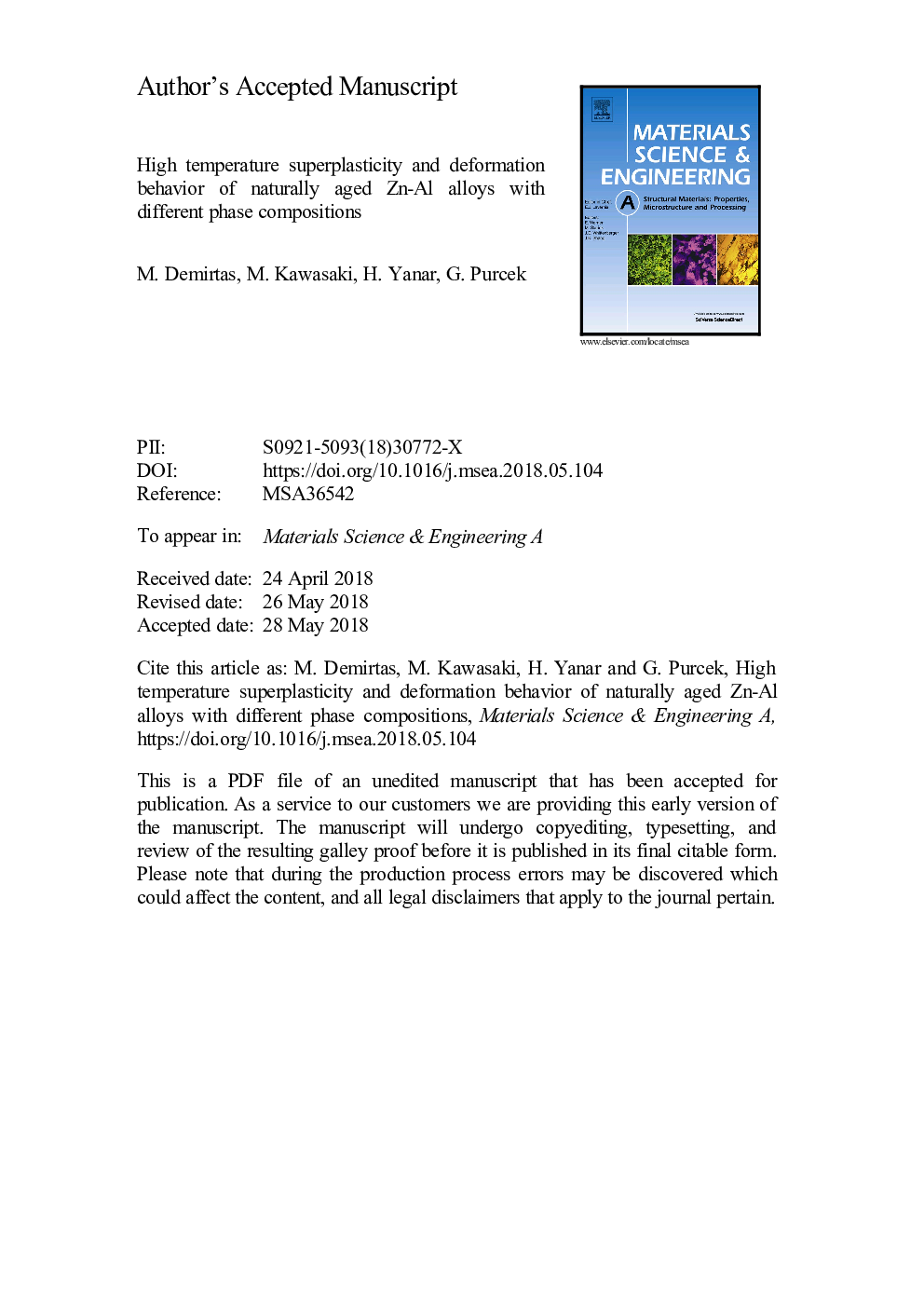| Article ID | Journal | Published Year | Pages | File Type |
|---|---|---|---|---|
| 7971740 | Materials Science and Engineering: A | 2018 | 25 Pages |
Abstract
Two Zn-Al alloys, eutectoid Zn-22Al and dilute Zn-0.3Al, were processed through equal-channel angular pressing (ECAP). The ECAP-processed alloys were subjected to long-term natural aging at room temperature for 120 days in order to investigate the effect of long-term natural aging on high-temperature superplasticity and the deformation behavior of these alloys. The grain size of the Zn-22Al alloy increased from 200â¯nm after ECAP to 400â¯nm after the natural aging process. The Zn-0.3Al alloy with a grain size of 1.3â¯Âµm after ECAP demonstrated a reasonably stable microstructure with the grain size of ~â¯1.7â¯Âµm after long-term natural aging. The naturally aged ultrafine-grained (UFG) Zn-22Al alloy showed an excellent superplastic elongation of about 1800% at 200â¯Â°C. Grain boundary sliding was determined as the dominant deformation mechanism in this alloy. On the contrary, a considerably low elongation to failure of 230% was recorded in the naturally aged fine-grained (FG) Zn-0.3Al alloy at 150â¯Â°C, and dislocation creep was evaluated as the main deformation mechanism for this alloy. Detailed microstructural analyses showed that the FG Zn-0.3Al alloy was exposed to grain boundary corrosion during the natural aging process due to the presence of Al precipitates at grain boundaries whereas such formation was not observed in the UFG Zn-22% Al alloy. Grain boundary sliding was hindered by grain boundary corrosion and the cavity nucleation at the corroded grain boundaries caused a premature failure leading to such a low elongation in the Zn-0.3Al alloy.
Related Topics
Physical Sciences and Engineering
Materials Science
Materials Science (General)
Authors
M. Demirtas, M. Kawasaki, H. Yanar, G. Purcek,
